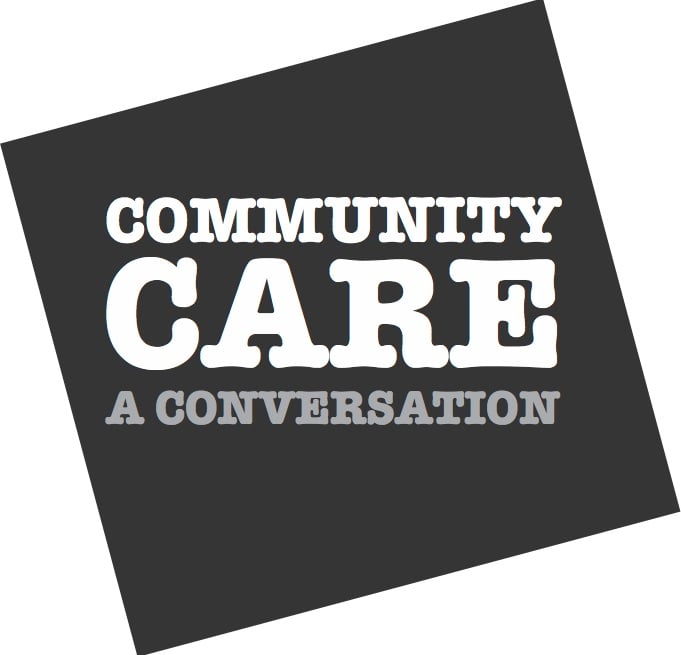Yesterday, an old colleague from the immigrant rights movement, B. Loewe wrote a thought provoking piece on self-care titled, “An End to Self Care.”After I read the piece, I told him how hard it was to not have an immediate and viscerally negative reaction to it. After we spoke, I realized that some of my reaction was based more on what I thought he was saying than what he was actually saying. But other parts of my reaction felt valid enough for me to respond to the piece.
Most of B.’s (I really should have asked him how to put an apostrophe by his name) primary point, as I understood it, is compelling enough:
“..self-care… inherently rejects collective responsibility for each other’s well-being…”
But as I kept reading, I got a sense of where my reaction was coming from:
“[self care] attempts to serve as a replacement for a politics and practice of desire that could actually ignite our hearts with a fuel to work ENDLESSLY.”
The idea that some of the hardest working people I know need to or should be able to work an hour more than they already do, nevermind endlessly, is pretty freaking terrifying. A lot of people working in change organizations, what we obnoxiously call “the movement,” have very little problem working their asses off (whether we work smart or not is another article). We have very little problem “burning the midnight oil” for justice, as I understood B. to be implying. In my almost two decades of change work, including 12 in the immigrant rights movement, I’ve met thousands of people whose courage, bravery and intellect were matched only by their insane work ethic. Almost all of them were driven by the fact that the folks we care about are struggling, suffering and dying daily. Sometimes they/we developed crazy martyr complexes. Other times we rolled our eyes when someone would bring up self-care, deep breathing or yoga mats (ok that was mostly me).
But I’ve also witnessed our work ethic create a martyr/persecution/entitlement complex that in any other profession/vocation/calling would be grounds for mandated professional therapy. I have also seen (sometimes in my own life) people who spend all day fighting for families facing deportation and the death penalty who were absent from the emergency room when their own families where sick or dying. Many of us have seen people fighting tooth and nail to stop evictions while their own home was being foreclosed on or participating on ridiculously long late-night conference calls while their owns kids needed help with homework. Most of us know old-school “movement heads” and veterans of “the movement” who gave their lives and livelihoods up so we can live in a more just world that are now growing old with no safety net, health insurance or pension. And I swear, if I see one more partner, spouse or whatever euphemistic term we use for the person that says they want to “leave you’re ass because you work too much” end an otherwise beautiful relationship, I might scream.
To me this is not about yoga, meditation or weekly pedicures. (Sidenote: Being South Asian, yoga was never a middle class “self-care” thing but some stuff my parents did in the morning growing up, even though one of them still had two heart attacks from stress.)
For folks in Miami, the issue of self-care hit a little too close to home when one of our new 25 year old colleagues passed away suddenly a little over a month ago. To be clear, no one knows what caused the illness that killed him. Nevertheless, his family noted his workaholism during his memorial service. At one point, someone mentioned that he had his laptop and cellphone with him in the hospital…because he a lot of work to do. A lot of people in the room chuckled affectionately in this way people do when they are trying to hide how horrified they are.
After the service, many of us were forced to ask ourselves what type of change we really want to see and whether our care culture reflects that change. A lot of our conclusions weren’t so different from B.’s. Caring for the people we work with and for should be a collective responsibility as much as it is an individual responsibility. Far too often, we have put the onus for sustainable living on the same people whose lives we cram with sometimes inspiring, other times tedious, tasks.
There are a lot of critical points and questions that B. brings up that shouldn’t be overlooked:
“how do we shape our struggles so that they are life-giving instead of energy-taking…When did activities that are aimed to move us closer to freedom stop moving us?”
“…don’t ask the single mother if she’s taking care of herself unless you’re also offering to do childcare. Don’t ask the striking teacher how they’re fairing unless you’re also picking up a picket sign.”
But true care, whether it is self-centered, community-centered or family-centered is something we should assume is part of change work. There is a huge difference between entertaining peoples excessive juicing habits or tolerating the presence of bouncy yoga balls in the office and ensuring that people are taking care of the things that people should be taking care of. Whether people like the analogy or not, we are soldiers fighting a war for human dignity. The key to winning the war is, in part, knowing when to be soldiers and when to be parents, children, siblings, spouses/partners or just human. To learn how to be all of those things effectively requires all of us prioritizing care.
Did you enjoy this article?
We're in the middle of our annual fund drive, and this year we're building our own internal infrastructure for subscriptions, meaning more of every dollar pledged goes to fulfilling our mission. Subscribe today to support our work and be a part of Convergence's next evolution.
